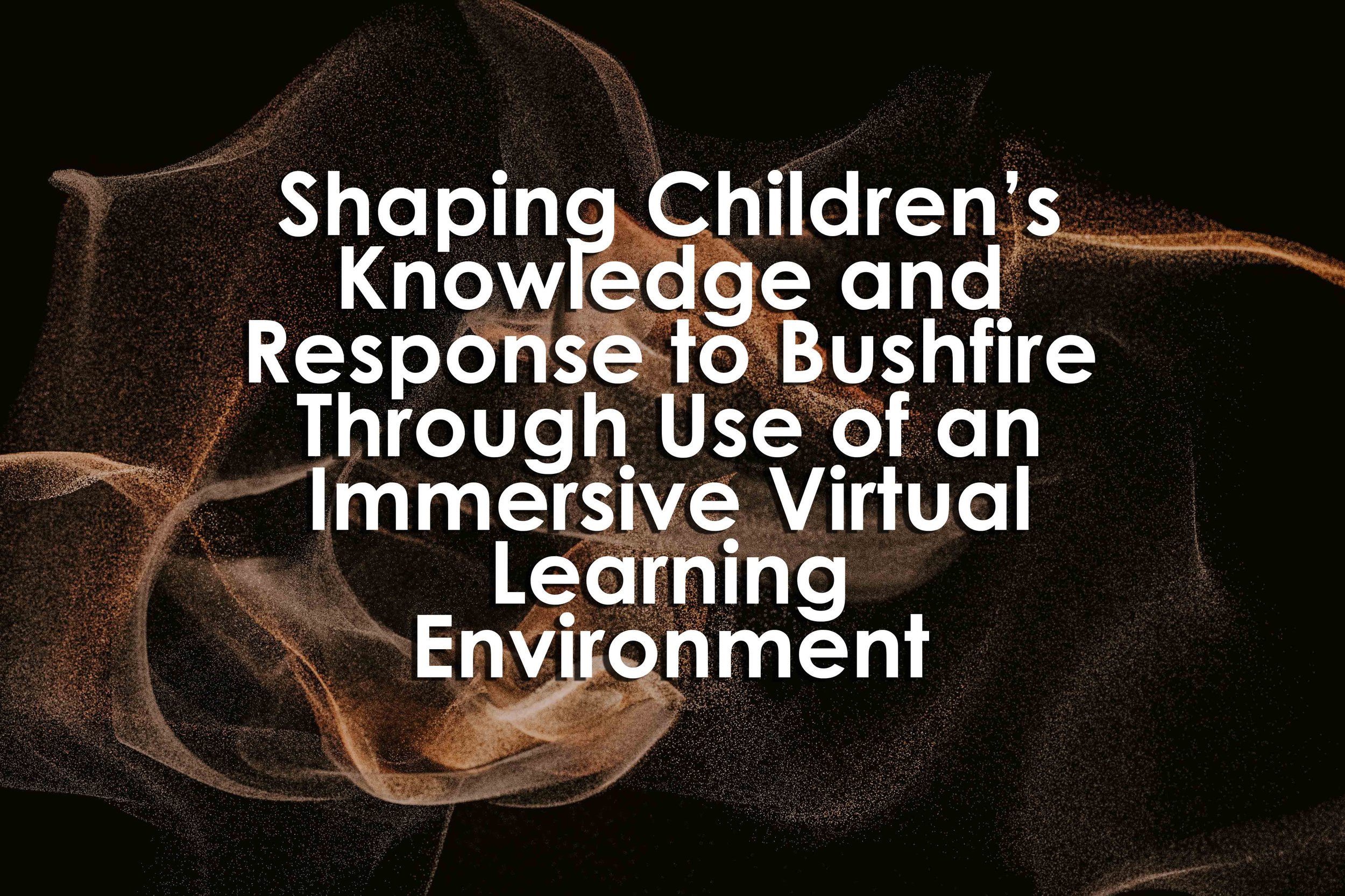Shaping Children’s Knowledge and Response to Bushfire Through Use of an Immersive Virtual Learning Environment
Shaping Children’s Knowledge and Response to Bushfire Through Use of an Immersive Virtual Learning Environment
Shaping Children’s Knowledge and Response to Bushfire Through Use of an Immersive Virtual Learning Environment
By Safa Molan, Delene Weber, and Matin Kor
Abstract
“A problem-based immersive virtual environment (IVE) about bushfire safety was developed as a learning tool for children aged 10–12. Its effectiveness was assessed in relation to children’s ability to determine how to be safer in a bushfire incident. A series of experiential activities were developed in the IVE with digital storytelling and two-stage embedded assessments providing children with an opportunity to engage with tasks and solve problems while receiving feedback on their performance. Changes from pre- to post survey results showed positive learning outcomes as evidenced by significant improvements in children’s knowledge of bushfire safety and confidence in their ability to contribute to decisions during a bushfire incident. The significant change in children’s knowledge as well as their performance at two-stage embedded assessments was independent of their gender, background knowledge and perceived ability in responding to bushfire hazards. This suggests that when appropriately designed and implemented within educational settings, immersive virtual learning tools can effectively engage children and enhance learning outcomes associated with bushfire safety. The paper also argues that such immersive problem-based learning can improve self-efficacy amongst children in relation to coping with a bushfire situation. Implications of the findings are also discussed.”
Reference
Molan, S., Weber, D., &Kor, M. (2022, February). Shaping children’s knowledge and response to bushfire ... Retrieved April 18, 2022, from https://journals.sagepub.com/doi/10.1177/07356331211054569
Keywords
Bushfire safety, children, immersive virtual environments, problem-based learning, knowledge transfer, self-efficacy beliefs, gender differences, research

